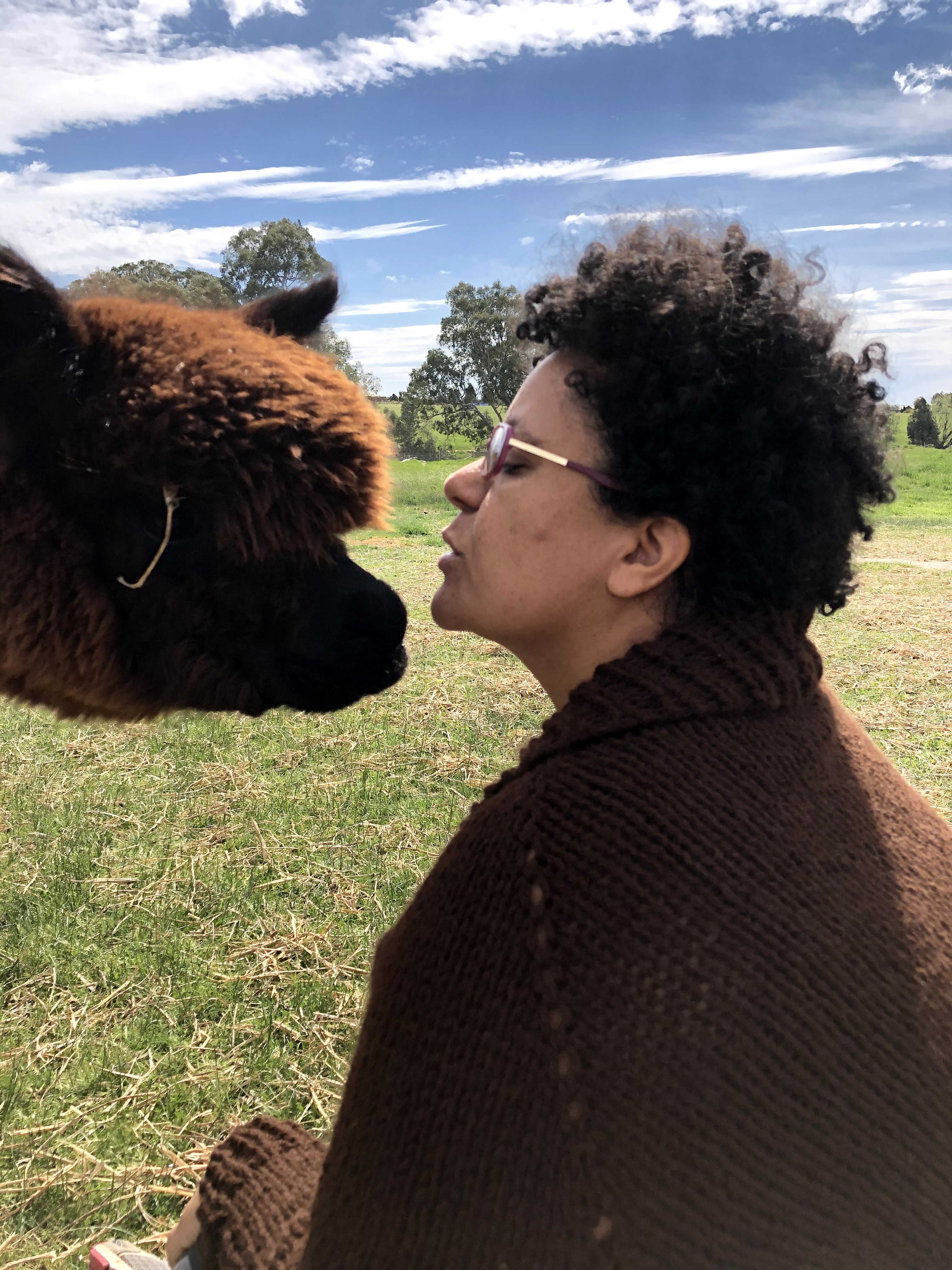What it's like to be an alpaca owner?
- Rita

- Jan 19, 2024
- 4 min read
Wondering about alpaca ownership? If you are considering alpacas for your property, you might want to know how much time you need to dedicate to them, the advantages of having alpacas, and the disadvantages. Each alpaca owner will have different perspectives. Here are some of my insights based on my alpaca journey.

Why did you want to have alpacas?
When I decided to leave Melbourne and move to a 7-acre property in Central Victoria, I initially thought about getting cattle. My mum had always wanted cattle and I grew up having her dream. However, after visiting a cattle farm, I realized they weren't the best fit for my small acreage. So I started exploring other options and that's when I discovered alpacas. I was drawn to their unique appearance and their ability to produce fibre for my knitting hobby. Alpacas seemed much more interesting than sheep, and after visiting an alpaca farm, I was completely hooked.
How many alpacas do you have? What are they like?
I started with three alpacas, which quickly grew to five within a few months, and then 12 the following year, as I bought more! As I got more involved in the alpaca community and started showing my alpacas, I developed a natural interest in breeding. This made me realise that my original seven acres were too small, so I moved to my current 25-acre property in Harcourt. Here, I can provide more space, shade, and better facilities for my alpacas. I now have between 35 to 40 alpacas at any given time. About 2/3 of my herd are females and 1/3 are males. They are always separated from each other, as alpaca males cannot live with females. Each of them is unique with their own personalities. I find it hard to describe alpacas to others: they are inherently reserved, watchful and inquisitive. They are highly herd-oriented, forming very strong social groups. Unlike what social media portrays, they do not "kiss" or "hug" humans - these are constructs we created. Alpacas are not pets like dogs or cats - they prefer their own company to ours, but they are exquisite livestock that, once understood, can enrich your life.
How much time, on average, does it take you per day (or week) to look after your alpacas? What does it involve?
I spend, on average, about 1-2 hours per day looking after my alpacas, but I spend more time with them on weekends. During the week, I check on them in the morning and evening, feed hay when required, and check troughs and pastures. On weekends, I spend more time with the alpacas, often bringing them into the handling yard to perform some healthcare, check their weight, etc. When the pregnant females are close to giving birth, I check on them frequently, several times during the day and at night. When we have weanlings, I spend a lot more time handling and getting them used to being in pens, as this prepares them to feel calm for healthcare tasks. There are certain times of the year when there's more work involved, like vaccinations, vitamin supplementation, shearing, and training. Then, there's the general farm work of mucking out manure, slashing pasture, fixing fences, etc. My partner does most of the farm work, and we rely on contractors to help us.
What do you enjoy most about being an alpaca owner?
Having alpacas has been one of the best decisions I've ever made. They have shown me that I am stronger than I thought and capable of doing things I never imagined, like giving injections. They have also influenced my philosophy and thinking, as I have had to learn a whole new animal language and skills to be a competent alpaca owner. Alpacas are unique animals, meaning you need to be willing to learn their way of being. For example, most people new to alpacas would face them front-on, stretching their arms to "pet" their heads and nose. Well, alpacas don't enjoy being petted or approached front-on by humans. The way we position our bodies is very important. Keeping our arms to ourselves, on our sides, is one of the many lessons I've learned by being an alpaca owner.
What do you enjoy the least about being an alpaca owner?
One of the hardest things is witnessing alpaca welfare issues and the misconception that alpacas are cuddly pets.
What has been the most difficult thing so far?
The death of animals has always been difficult, along with the limited number of experienced alpaca vets nearby. Dealing with discrimination, politics and tall poppy syndrome within certain areas of the alpaca breeding industry has been extremely challenging. However, I've also come across incredible people from all around the world who have supported and encouraged me along the way.
What advice would you give to prospective alpaca owners?
Take your time and don't rush. If you're interested in alpacas, visit an alpaca or multiple farms. Remember that alpacas are not pets or paddock decorations. Do your research, learn, and attend workshops. For some, alpacas might not be the best livestock. Perhaps sheep, goats, or something else might better suit your goals, land and lifestyle. Understand that owning alpacas is a long-term commitment and that you'll need to learn basic alpaca healthcare and handling to care for your animals properly.

What's next?
If you're eager to learn about alpacas, we encourage you to attend one of our workshops or contact us with any questions. We love sharing our knowledge with others.



